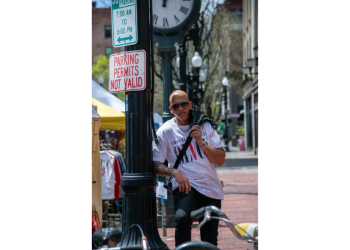You might remember the case of a black waitress here in San Francisco who made headlines, saying institutional racism caused her to be fired from several different restaurants, with one being a restaurant where several of her white coworkers touched her hair and management got rid of her instead of stopping it.
A black waitress in South Florida has made a strikingly similar claim. In an unfortunate incident that highlights ongoing issues of racial bias in workplaces, a former employee of Truluck’s Restaurant in Fort Lauderdale said she was unfairly terminated. She released a YouTube video detailing the events that led to her dismissal, saying black people are judged more harshly than others. In her video, she admitted to accidentally not sending an entree to the kitchen but stated it was the first time she had done so and even showed proof that white servers at the restaurant have done that as well as worse things, but none have been terminated. She suggests that if she had been white, the repercussions for such a minor error would have been less severe. The situation sparked outrage, with a few media organizations covering the story. The business denied any racial bias, but even the most naive person knows that she wouldn’t have been terminated for that situation, had she been white.
Furthermore, the woman’s account raises questions about the underrepresentation of black servers in expensive restaurants. She stated that she was one of two black servers hired but she saw several black dishwashers, black cooks, black hostesses, and black assistants. Over twenty white servers compared to two black servers, but so many black people working the lesser positions. After the video was posted in a heavily engaged Facebook group, it prompted discussions about the broader issue of racist hiring practices in the restaurant industry. Many argue that most expensive restaurants rarely hire blacks for server positions, which are more lucrative than roles like dishwashing. They readily hire black people to wash dishes but are hesitant to hire black people to serve food in high-priced restaurants. More affordable restaurants tend to have black servers, while pricey establishments have predominantly white servers. This observation sheds light on an underlying issue of racial biases affecting hiring decisions.
In another disturbing account, the ex-employee stated she was made to feel like ‘an animal at a zoo’ after several of her white coworkers would randomly touch her hair as if they considered her to be “different” due to her hair texture. She specifically mentioned a server named Gregory Martinez who not only touched her hair on two different occasions but also asked her if she was wearing contact lenses. That undoubtedly made her feel awkward and uncomfortable considering several white employees there have colored eyes but were not asked if they were wearing contact lenses. It left her feeling isolated as if he questioned the authenticity of her appearance.
“He seemed to have viewed me as a rare species,” she said. “Asking if I wear contacts as if my eye color is not authentic. It’s like questioning my identity as if my appearance is artificial to him. But we all know the popular belief is that black people can’t have light colored eyes. His choice to believe that is his right but when you go up to someone asking them such intrusive questions, while they are surrounded by white people with the same color eyes yet you’re not questioning the white people, you should know clearly that would leave the black person feeling separated. People love to tell us to stop pulling the race card, yet these are the decks that we are dealt.”
The woman has listed the dates that several different employees touched her hair, as well as the date that Gregory Martinez questioned if she had in contact lenses, and she has initiated a case with the EEOC and will file a lawsuit after the EEOC completes their investigation. In many jurisdictions, touching someone’s hair without permission can constitute harassment or even assault. When informed that she could potentially file charges against her former coworkers, the woman said she would rather go after the establishment for creating an environment that allowed white employees to treat her like a novelty, making her feel objectified and different.
Additionally, questioning the authenticity of someone’s appearance based on racial stereotypes, such as suggesting that a black person’s natural eye color must be fake, is considered racial discrimination and undoubtedly created a hostile work environment. Employers have a legal obligation to provide a workplace free from harassment and discrimination based on race or any other protected characteristic. If they fail to take appropriate action to address such behavior, they should be held liable in a lawsuit.
“I am not unusual. I am a regular person, there is nothing exotic about me, therefore, no one should touch my hair or question me as if I’m different from anything they have seen before,” she said.
The ex-employee’s case serves as a reminder that even in 2024, people of color continue to face unequal treatment that employers will deliberately deny. The call for greater equality and diversity in workplaces, particularly in positions of visibility and influence, remains an ongoing struggle because no employer is willing to admit racial bias.
























